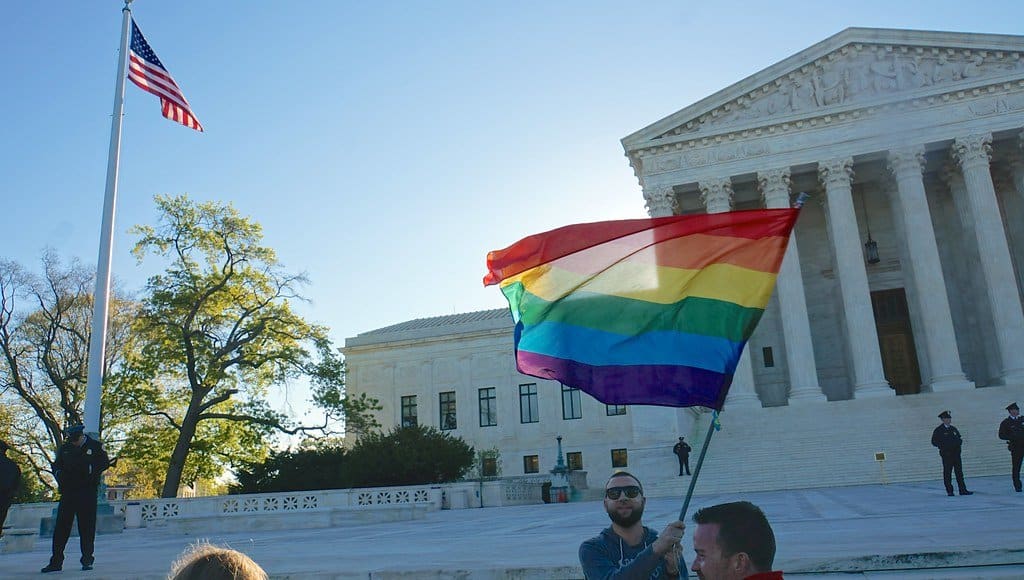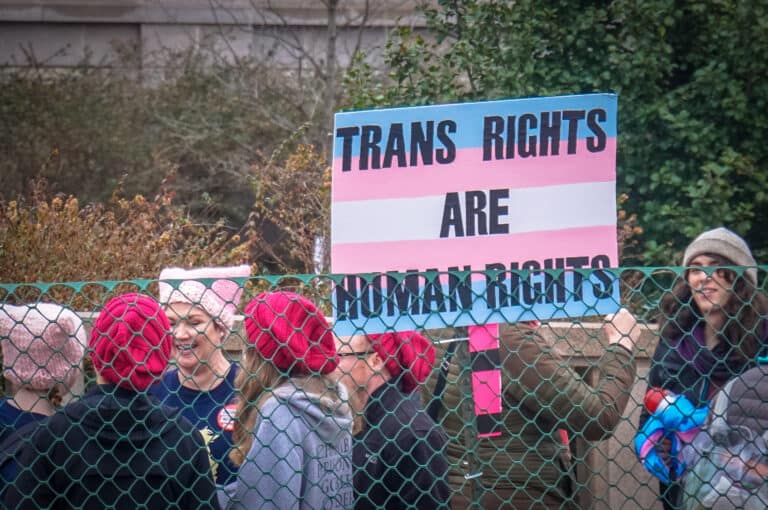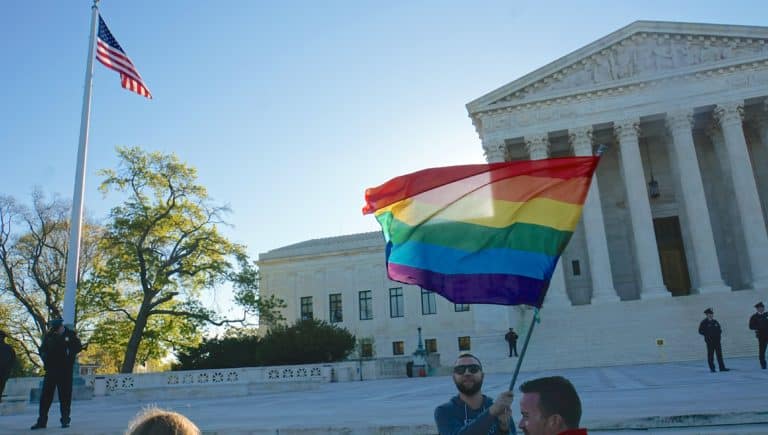This post concludes our review of the amicus briefs submitted in support of the LGBTQ employees in Bostock, Zarda, and Harris. We will summarize the opening and amicus briefs submitted in support of the employers when those briefs are available at the end of August.
Military and Veterans
The Modern Military Association of America and Transgender American Veterans Association argue that protections against employment discrimination are crucial to allowing LGBTQ family members of service members to support their families’ financial health and lead their lives with dignity. Such protections are also necessary for veterans as they transition to civilian employment, a difficult path even for veterans who do not face LGBTQ discrimination. Finally, LGBTQ employment protections are a national security interest because permitting discrimination can affect the morale of service members whose LGBTQ family members have suffered consequences from discrimination, and lower morale can hinder recruitment and retention.
Politicians, Lawmakers, and Executive Branch Officials
A group of 39 U.S. Senators and 114 Members of the House of Representatives say that the text of Title VII unambiguously bars discrimination because of sexual orientation and gender identity, but that any exploration of legislative intent should focus on the statute’s broad remedial purpose of eliminating discrimination and not the subjective intent of individuals in the enacting Congress. Moreover, the lawmakers urge the Court not to read into subsequent legislative history in order to derive the meaning of text passed in 1964.
A group of former executive branch officials and leaders (including OnLabor Senior Contributor Sharon Block) remind the Court that the EEOC, the agency in the best position to interpret the country’s anti-discrimination laws, concluded in Baldwin v. Foxx that sexual orientation discrimination is sex discrimination and in Macy v. Holder that gender identity discrimination is sex discrimination. To the extent legal decisions allowed, other federal agencies followed the EEOC’s lead. The Departments of Education, Justice, Health and Human Services, and Labor all determined that prohibitions against sex discrimination in federal anti-discrimination laws within their purview also barred gender identity discrimination. Several agencies reached the same conclusion with respect to sexual orientation discrimination. The officials emphasize that just because some agencies moved slower than the EEOC in this regard does not mean they disagreed with its interpretation. Rather, they believe their agencies would have reached the same conclusion as the EEOC had the case law been as developed then as it has since become.
Walter Dellinger, Karen Dunn, Neal Katyal, Theodore B. Olson, and Seth Waxman, who are four former Solicitors General and Acting Solicitors General of the United States and a former Associate White House Counsel, say that textualism resolves the cases in favor of the LGBTQ employees. “Because of” demands a broad understanding of how sex can unlawfully affect an employment decision, “such individual’s” clarifies that Title VII protects individuals and not classes, and even the narrowest view of “sex” as male or female as assigned at birth should result in a favorable outcome for the employees.
The States of Illinois, New York, California, Colorado, Connecticut, Delaware, Hawaii, Maine, Maryland, Massachusetts, Michigan, Minnesota, Nevada, New Jersey, New Mexico, Oregon, Pennsylvania, Rhode Island, Vermont, Virginia, and Washington, and the District of Columbia argue that pervasive LGBTQ discrimination interferes with their efforts to build inclusive communities and costs them millions annually in social safety net costs and lost revenue. States with LGBTQ anti-discrimination laws on the books also rely on Title VII as a supplemental enforcement tool and enter work-sharing agreements with the EEOC that would be disturbed if Title VII coverage was narrowed.
A group of 66 local governments and 28 mayors discuss the benefits their communities have experienced from barring the full range of sex-based discrimination, including discrimination based on sexual orientation and gender identity. They say that a greater ability to attract LGBTQ personnel has improved government operations. The officials also contend that discrimination can lead to an increased need for government services and thus drain resources if left unchecked.
A group of Republicans, former Republicans, and political conservatives, led by former Republican National Committee chairman Ken Mehlman, say that textualism makes this an easy case for LGBTQ employees. Discrimination because of sexual orientation or gender identity is necessarily discrimination because of sex, and congressional “intent” plays no role in interpretation when the text is clear. Moreover, Title VII explicitly bars discrimination against “individuals,” rather than protected classes as a group. Mehlman penned an op-ed to accompany the brief for The New York Times.










Daily News & Commentary
Start your day with our roundup of the latest labor developments. See all
June 30
Antidiscrimination scholars question McDonnell Douglas, George Washington University Hospital bargained in bad faith, and NY regulators defend LPA dispensary law.
June 29
In today’s news and commentary, Trump v. CASA restricts nationwide injunctions, a preliminary injunction continues to stop DOL from shutting down Job Corps, and the minimum wage is set to rise in multiple cities and states. On Friday, the Supreme Court held in Trump v. CASA that universal injunctions “likely exceed the equitable authority that […]
June 27
Labor's role in Zohran Mamdani's victory; DHS funding amendment aims to expand guest worker programs; COSELL submission deadline rapidly approaching
June 26
A district judge issues a preliminary injunction blocking agencies from implementing Trump’s executive order eliminating collective bargaining for federal workers; workers organize for the reinstatement of two doctors who were put on administrative leave after union activity; and Lamont vetoes unemployment benefits for striking workers.
June 25
Some circuits show less deference to NLRB; 3d Cir. affirms return to broader concerted activity definition; changes to federal workforce excluded from One Big Beautiful Bill.
June 24
In today’s news and commentary, the DOL proposes new wage and hour rules, Ford warns of EV battery manufacturing trouble, and California reaches an agreement to delay an in-person work mandate for state employees. The Trump Administration’s Department of Labor has advanced a series of proposals to update federal wage and hour rules. First, the […]